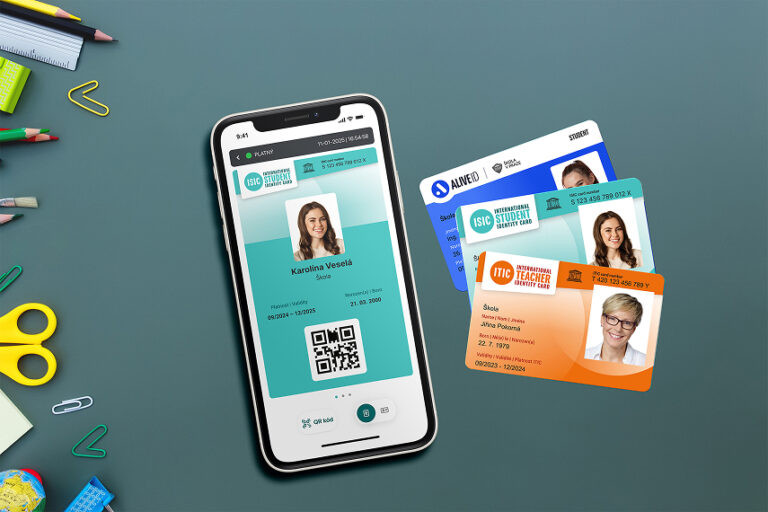Want to apply for a job or internship at a British, American, or other international company where you won’t stand a chance without a perfectly written resume in English? Don’t worry — this article will give you some useful tips to make sure your English CV (or resume) is spot on.
A quick reminder to start with
We dedicated an entire article to writing a student resume , so we won’t go over the basics of resume writing again here. Instead, we’ll focus on the tricky parts that might catch you off guard when writing your resume in English. That said, here’s a quick reminder of the basic rules — don’t forget, your resume should be:
- concise
- to the point
- well-organized
- clear
- free of grammatical and factual errors
- up-to-date
- structured
Different names for an English resume
In Europe, there’s a growing push for a standardized resume format known as the Europass CV. What might also confuse you are the terms Curriculum Vitae (CV) and Resume. If you’ve been wondering about the difference, here’s the answer:
Use CV when applying to the UK or most European countries. Use resume when applying to jobs in the United States. Simply name your document according to the country you're targeting. That said, it’s perfectly fine to name the file after yourself. This part of the resume is called the Heading.
Main differences between a Czech and an English resume
Believe it or not, your university title doesn’t belong in an English resume. It’s not that your education isn’t important — it’s just that academic titles aren’t commonly used in other countries and would likely be misunderstood.
Personal details
Likewise, don’t include your marital status or date of birth in your CV. In American resumes, even gender is no longer listed, and including a photo is a big no due to anti-discrimination policies. In British resumes, a photo is generally not expected either.
Basically, it’s enough to include your mailing address, phone number, and email address. Personal details go under a section titled Info, Details, or Personal Information.
Work experience
Work experience usually carries more weight than education in English-speaking countries, so it's typically listed first. However, since you probably don’t have much experience yet as a student, feel free to start with your education and other qualifications, and add your experience afterward.

Structured or professional resume?
in English, there are two types of resumes — the chronological CV (structured) and the functional CV (skills-based). The chronological resume is easier to create because it’s more similar to the Czech CV and is the one you’ll most likely use more often.
A functional resume needs to be tailored to the specific position you’re applying for. Instead of listing your experience and education chronologically, highlight your key strengths and relevant experience.
If you want to see what it should actually look like, check out the article on how to write a chronological and a functional resume in English. You’ll also find a sample English resume there.
In any case, before writing your resume, make sure you know which type is expected — so you don’t ruin your chances right from the start. If it’s not clearly stated, play it safe and go with a chronological resume.
Watch out for the correct terminology
Remember that education systems vary from country to country, so be careful with the terminology you use. It will mainly depend on whether you're sending your resume to the U.S., the U.K., or somewhere else.
High school
While the Czech Republic distinguishes between several types of secondary education, in English you only need two terms. In the U.S., it’s called high school, while in British English, it’s secondary school.
If you attend a gymnázium and you're sending your resume to the UK, you can also use grammar school — but be careful: in the U.S., that term refers to elementary school.
School-leaving exam / A-levels / High school diploma
If you’re not sure how to translate maturitní zkouška, here’s what you need to know. In the UK, students finish secondary school with A-levels (Advanced Level General Certificate of Education) or GCSEs (General Certificate of Secondary Education).
In the US, the equivalent is the SAT (Scholastic Aptitude Test or Scholastic Assessment Test). So skip vague terms like “school-leaving exam” — they’re likely to confuse the reader.
University / College
When it comes to higher education, be careful again with the difference between British and American English. In the UK, the term university is used exclusively. In the U.S., college is more common — but not always.
In American English, college typically refers only to institutions offering bachelor’s degrees. For higher levels (like master's or PhD), the term university is also used. Just for context, in British English, college can mean a vocational school or even a type of secondary school.
As for finishing your university studies, this part is much simpler — the terminology is consistent across countries. Use the following terms:
- Bakalářský titul – Bachelor’s degree
- Magisterský titul – Master’s degree
- Doktorský titul – Doctor’s degree

Exaggerate in your professional summary? Sometimes yes, sometimes no
The professional summary — or Profile — is the opening section of your resume, where you need to sell yourself, no matter where you’re applying. However, the way you approach it depends on the target country. In the UK, present yourself with balanced confidence, similar to how you would in a Czech resume.
But if you’re sending a resume to an American company, you’ll need to significantly boost your profile. Since this kind of self-promotion is expected, it won’t come off as arrogant at all.
Split skills into multiple sections
The second-to-last section of your English resume focuses on additional knowledge and skills, just like in the Czech version. You can probably handle that on your own. What’s also useful to know, though, is that you can divide these into several categories and list individual skills in bullet points. You can break down your skills as follows:
- Personal skills (creative, organization skills, self-driven, fast learner, committed, punctual, methodical…)
- Language skills (basic, moderate, good, advanced, fluent, native)
- Computer skills (thorough understanding of, full understanding of, experienced in, good background in, advanced experience with, advanced user of…)
- Other skills (clean driving licence/driver’s licence…)
Practical tips to wrap up
Before you start writing your resume in English, always check the specific rules for the country you’re sending it to. Otherwise, you might end up at a disadvantage compared to the competition. In your English resume, use action verbs like “implemented,” “analyzed,” or “created” instead of nouns wherever possible.
If you want to save time on formatting your resume and make sure it looks professional, you can use one of the many online resume builders. Once you’ve finished your resume, double- and triple-check it to make absolutely sure there are no spelling or factual mistakes — not a single one.
If you're not 100% confident in your English, it’s definitely a smart move to have your resume checked by a native speaker — or at least someone highly proficient in English.






